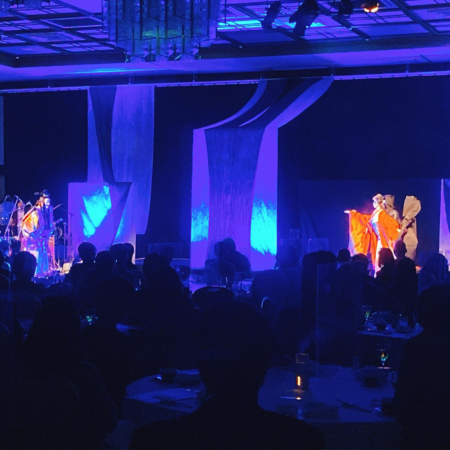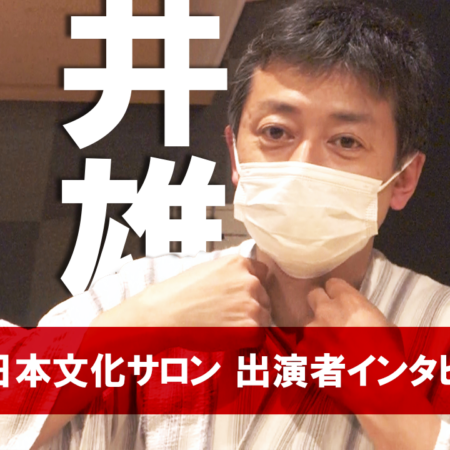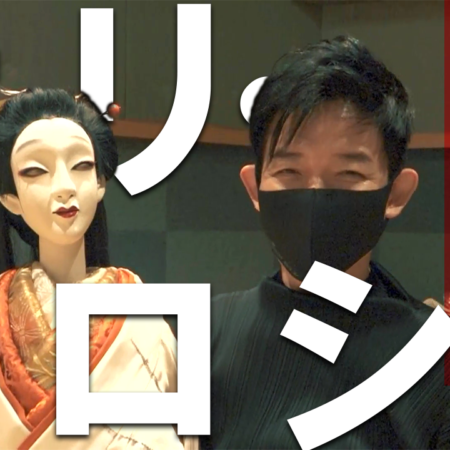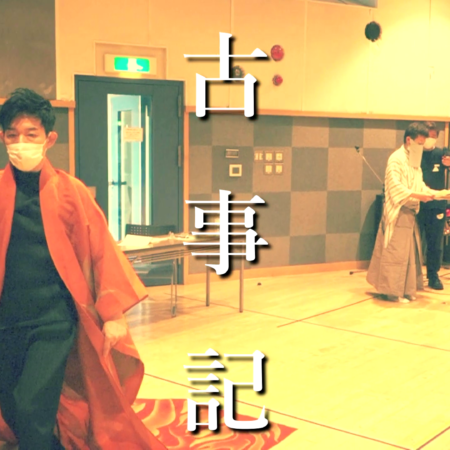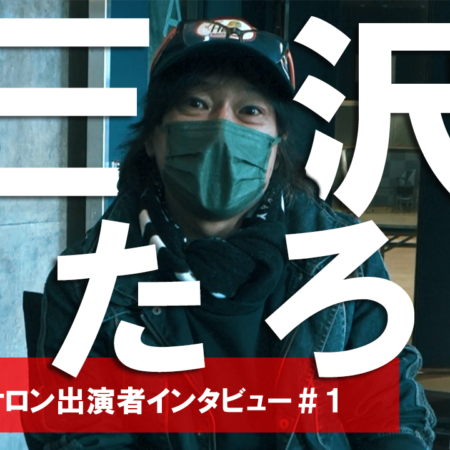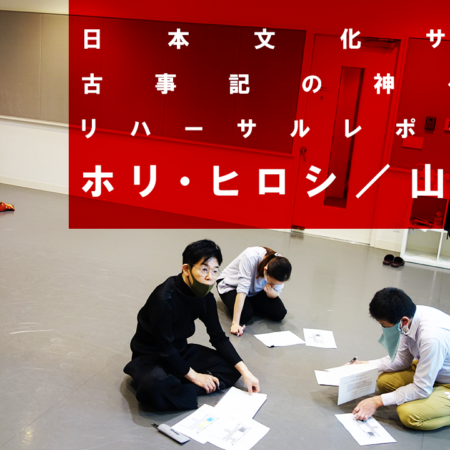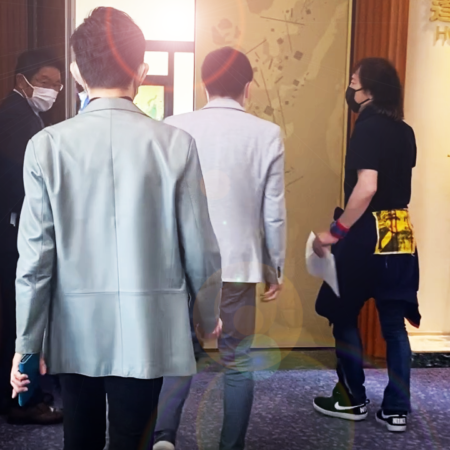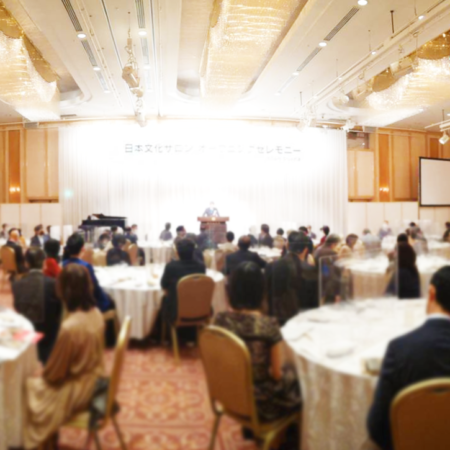SPECIAL
Futures & Issues
[Reporte] Opening Ceremony on Nov. 11 at Meiji Kinen Kan
Opening Ceremony were held on Monday, November 1, 2021 at Meiji Kinen Kan!
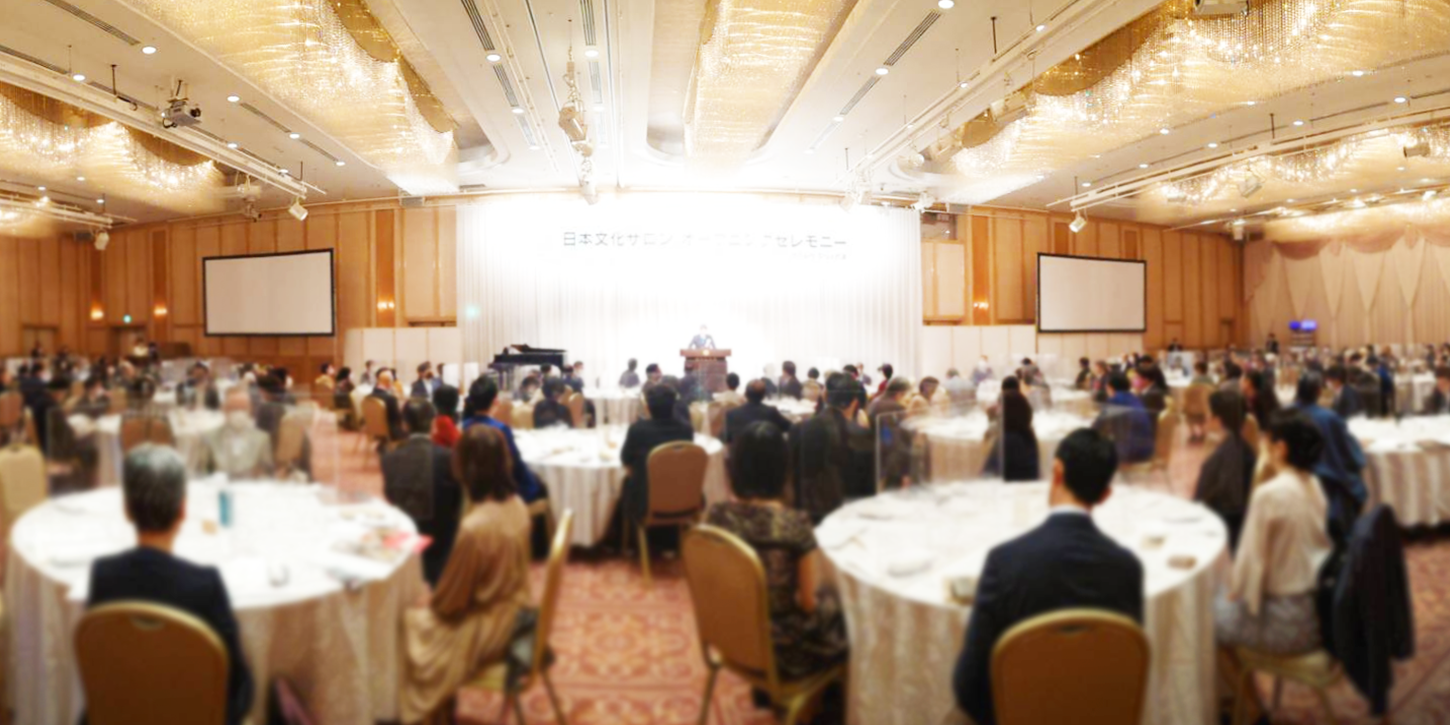
The ceremony began with an opening image video in which portraits of leading Japanese and international cultural people in the 20th century flowed like running horses and gathered in Japan’s mountain rivers and Ise Jingu Shrine. The opening of the ceremony was declared by Representative Eitaro Ogawa, and the noh stage with “Kotsuzumi (a small drum)” of living national treasure Genjiro Okura and Tsunao Yamai who leads the young Noh world danced “Okina”, “Takasago”, and “Shoujo”.
Program
Moderator: Mihoko Shibata
– Opening video screening
– Opening Declaration
【Part 1】
– Noh – Okina, Takasago, Shoujo
Noh performers Genjiro Okura and Tsunao Yamai
– Explanation of the intention to establish a Japanese culture salon
– Cheers
– Congratulations
– Congratulatory telegram
– Video message from Susumu Ishihara
– Introducing advisory board members
– Introducing our cultural activities
– Introducing Toshikatsu Ishimura's collection of poems "Sonata / Sonatine"
【Part 2】
– Lecture "Literature and Me"
Yang Yi
– Soprano sing-along
Mari Moriya
– Closing
Opening Memorial Performance
Noh –Okina, Takasago, Shoujo–
Performer: Genjiro Okura, Tsunao Yamai
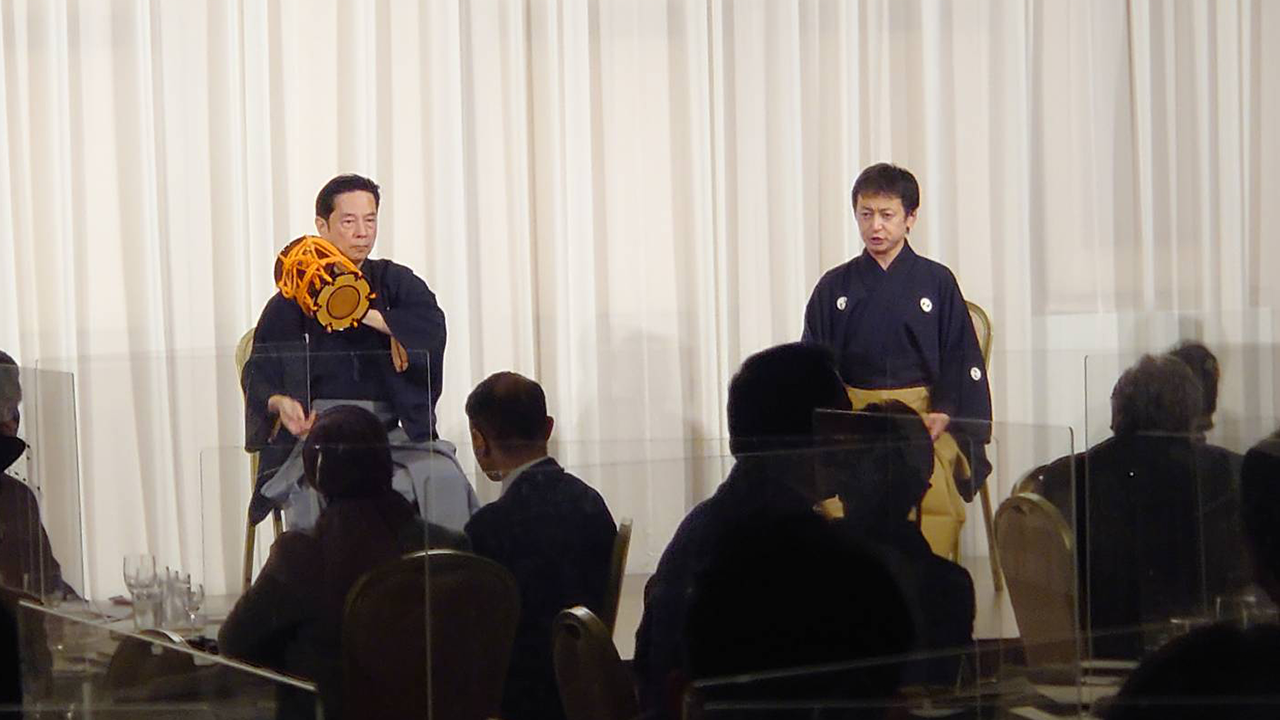
Petit Noh Lecture by Genjiro Okura
Which hand did you hold, which shoulder did you hold, and which hand did you use? To this question from Mr. Okura, the hall also reacted, “If you are told so, oh?”.
“Those who experienced can do it quickly. Don’t think you understood just by seeing and hearing. Please take another step and have an “experience”.” I said, and I decided that everyone in the venue would actually experience “Air Kotsuzumi”. It seems to have become a memorable story of everyone further.
Declaration
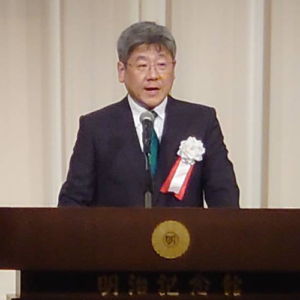
Representative of Nippon Art & Culture Salon
Eitaro Ogawa
Cheers greetings
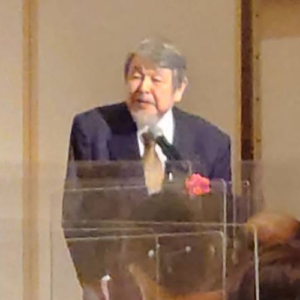
Tsukuba University honorary professor, literary critic
Tadao Takemoto
Congratulations
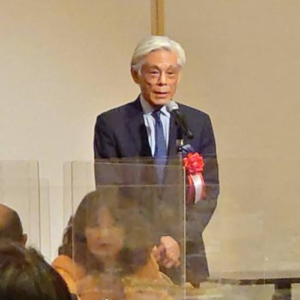
20th Commissioner for Cultural Affairs
Representative of the Institute of Culture and Foreign Affairs
Mr. Seiichi Kondo
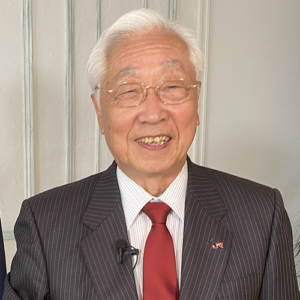
Special advisor of JR Kyushu
Former Chairman of the Management Committee of NHK
Mr. Susumu Isihara
Celebration telegram
(Summary) Please forgive me for not being able to attend this memorable meeting today. It is said that the last 10 years will be the period of Japan’s competition due to the decline in GDP, technological delays such as digitization, and the era of rapid population decline. It is necessary to understand Japan’s excellent culture in order for as many people as possible to have the desire to cherish the country, but I think that culture has the power to sympathize and connect with people and has an important role to play. To commemorate the success of the “Nippon Art & Culture Salon”, I will do my best to support you.
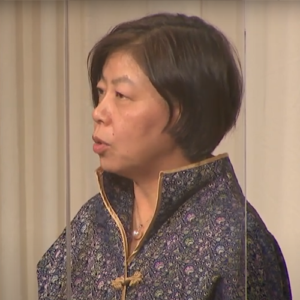
Writer: Yang Yi
The 139th Akutagawa Prize-winning artist
Visiting Professor, Kanto Gakuin University
Professor, Department of Arts and Literature, Nihon University College of Arts
Memorial Speech
“Literatue and I”
Abstract: In my case, I think the subject “literature and I” will not be transmitted unless we talk about the cultural environment of China, which is the birthplace. There was Mao Zedong and Marx in Cultural Revolution and the bookstore at time, and it was an age when even proletarian literature and Hemingway were used by the communist party if Lu Xun and literature were written if it said literature. Under such an environment, I came to think that “literature” must have some “cause” and “sociality to something”.
However, when it came to Japan, and the novel (Junichiro Tanizaki and Yasunari Kawabata, etc.) of Japan was read, only the word was beautiful, and it was attacked by the sense of incongruity only of peeping into others’ private lives. I tried to understand Japanese classics as to why I didn’t understand the goodness, and in that I came to feel the Japanese roots “Wa” in “Manyoshu”. And, it was noticed that Chinese literature was the one that “Individual” was lost to the limit, and the opposite pole was Kawabata which was literature of “Individual” which excluded a political one. The pursuit of “individuality” is a big subject for democracy at the same time. We are now welcoming while deepening our recognition.
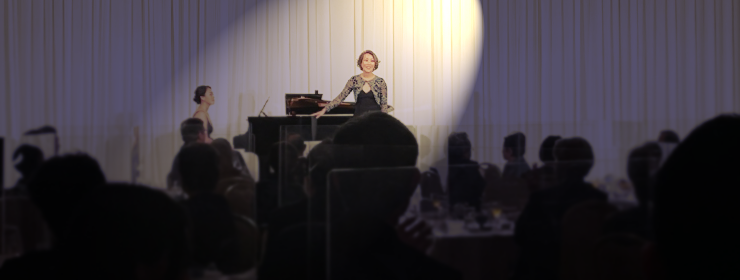
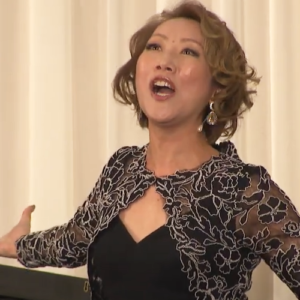
Soprano singer Mari Moriya
Piano Junko Takada
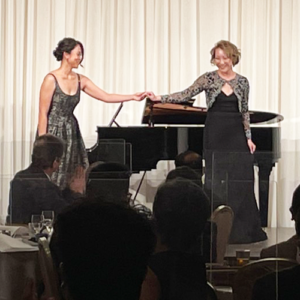
Memorial Stage
Soprano Solo
―R. Strauss
8 Songs by “The Last Tree Leaf”
From Op.10:
◇Song 1 “Zueignung”
◇ The third song “Die Nacht”
-Vol.8 “Allerseelen”
From 6 songs Op.17:
-Song 2 “Ständchen”
From Four Songs Op.27:
-Song 4 “Tomorrow! (Morgen!)”
―Giacomo Puccini
From The Opera La Bohème:
– Aria “When I walk around the city
(When m’en vo)”
Eitaro Ogawa, a music critic who has written “Furtwängler and Karajan”, says Mari Moriya is one of the world’s best soprano singers. Mr. Ogawa is an avid fan since he was fascinated by Moriya’s singing and acting in the title role of R. Strauss’s Salome, which he accidentally listened to at the invitation of an acquaintance two years ago. Ms. Moriya on this day, from the sober program of Strauss’s early song collection, she unfolded a mysterious voice and nuance, inviting the audience to deep emotion. When she sang “Manon” to the encore, Mr. Okura and Mr. Yamai, who were inspired by it, offered an encore themselves, and the ceremony ended with a heated performance of the last scene of “Yashima” depicting Yoshitsune Minamoto. The venue was deeply moved and filled with unexpected presents.
